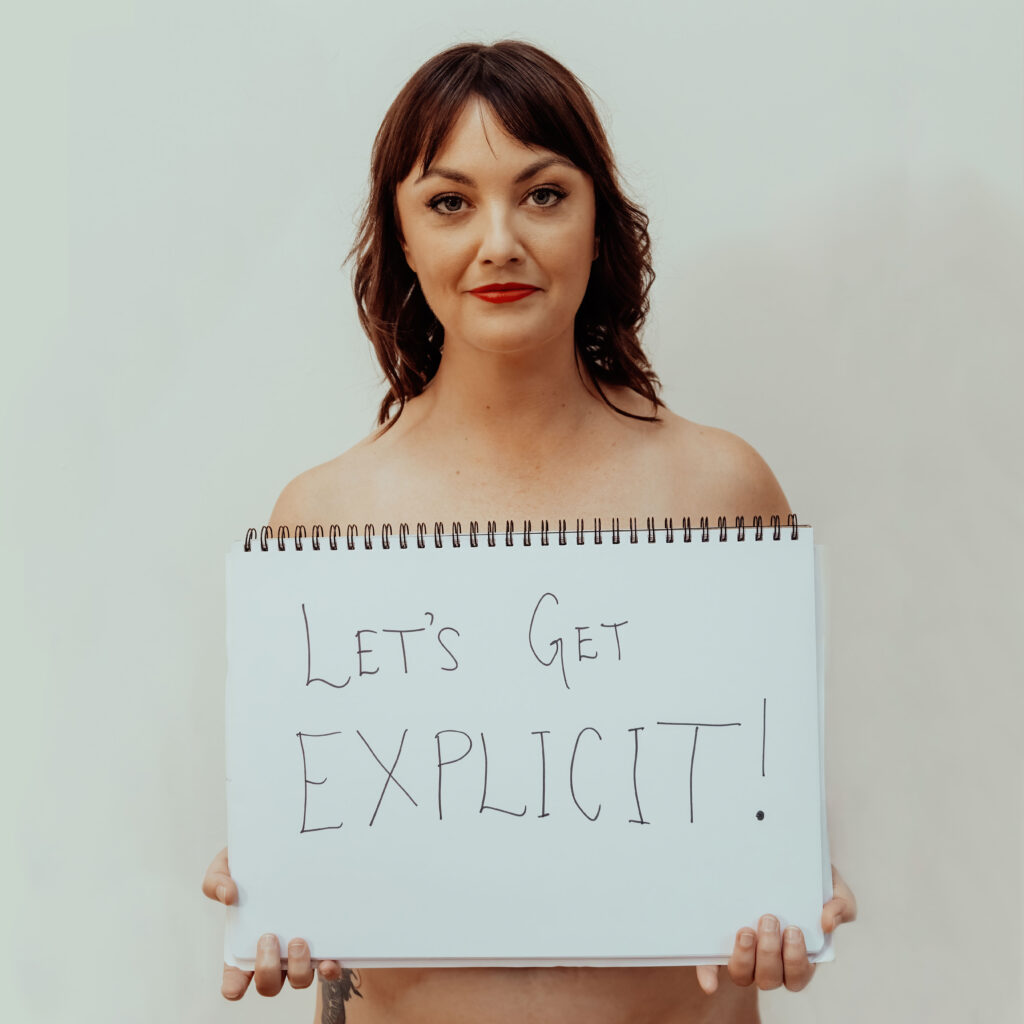“I’m ‘getting explicit’ for my Grandmother Doll and my Mum Julie, who have been directly impacted by family violence

By Rachel Payne
Our Grandmothers often hand down all sorts of things – habits, traditions and knowledge. I’ve got my grandmother’s apple pie recipe, her sense of humour and an unwavering habit of tucking my singlet in ‘to keep my kidneys warm’. I was also taught to be wary of men from a very early age.
My grandmother told me to make sure I pick a good partner. Relaying this sentiment, she looked at me with tears in her eyes. She divulged that she didn’t feel she made a good choice. She blamed herself for what was done to her.
My grandmother Doll was a wonderful baker and seamstress. She was a mother of three daughters and the wife of a very violent police officer.
My mother once told me of a time when she was 5, and her father socked her in the eye with the butt of his gun. What was more devastating to her was that he was so charming and sweet to all the other little girls. They played out in the front yard while she sat inside hiding her swollen, black eye.
When I was in my first year of uni, I jumped in the middle of a fight where a jealous boyfriend was about to slap his girlfriend. My boyfriend of the time pulled me away. He told me not to get involved.
Australia should be ashamed of its long, insidious history of violence against women. This violence is so ingrained in our social make-up. We find it hard to reconcile that it’s to do with “us”.
Since the start of 2024 to early June, at least 40 women have lost their lives to violent men.
It’s hard not to feel helpless when presented with the facts. I have raised this issue in parliament 23 times, attended rallies, and met with stakeholders and service providers. I have also met those who have been directly impacted by violent men.
Every budget I have asked for funding for services that support violent men. These services aim to rehabilitate them and teach better ways to deal with emotions.
But I still feel helpless when I hear that another woman has lost her life at the hands of a violent man.
Sometimes I feel like I’m screaming into an echo chamber!
So, when I was invited to be part of ‘Let’s Get Explicit’ alongside other amazing social campaigners and advocates, I leapt at the chance. This calendar campaign is about flipping the narrative. It’s time to get explicit about women experiencing violence.
I stood up and stripped down to draw attention to this issue!
Getting naked in front of a camera is not something that is foreign to me. In my late-20s and 30s, I was a burlesque performer and strip tease artist. Not only was it my art, but it also helped keep a roof over my head and pay my bills while I was studying. Art, and particularly burlesque, has deep roots in political commentary and satire. It is titillating in a way that is provocative and challenging. It is a form of entertainment that seeks to push boundaries and open minds.
Now aged 42 I’m taking the stage as a Member of Parliament. I am a little older and wiser and my body has evolved since my performing days. I’ve been on a journey of self-love as my body changes, I want to celebrate that. I know most women experience this as they enter their forties. It’s important for other women to see me proudly showing my body publicly.
This type of discourse is part of my identity. It’s how I can engage in social commentary. I know its controversy will catch people’s attention and challenge these injustices. I mean it’s completely fine for men to walk around topless and to feel safe engaging in everyday activities like going for a run. But for women, our nipples are sexualized and seen as explicit. I disagree with this narrative!
I’m ‘getting explicit’ for my Grandmother Doll and my Mum Julie, who have been directly impacted by family violence. They still face the ongoing impacts of trauma and abuse.
As a legislator, I am standing up, stripping down, and provoking the status quo to recognize that it is up to all of us. Especially those in positions of power need to take action and say ‘enough is enough’. We need to create meaningful change!
‘Let’s Get Explicit’ calendar features Australian women dressing down in settings where they feel empowered – from politicians, to media personalities, academics and content creators. The calendar is marked with important dates throughout the year to remind you to keep fighting. This includes times when there’s a spike in domestic violence incidents, such as the Melbourne Cup and football finals. It also includes dates to advocate to your local MP for government funding to support women experiencing violence.





